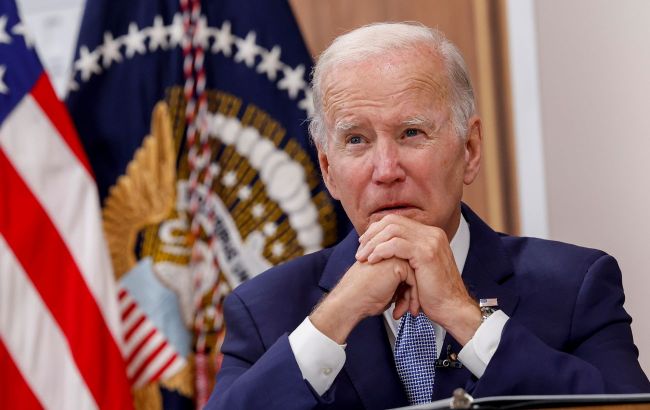Biden authorizes Ukraine to strike Russia with ATACMS missiles, NYT reports
 Photo: US President Joe Biden (Getty Images)
Photo: US President Joe Biden (Getty Images)
US President Joe Biden has authorized Ukraine to use long-range ATACMS missiles on Russian territory for the first time. This decision comes two months before the end of his presidential term, according to The New York Times.
According to officials, the weapon will likely be used initially to protect Ukrainian forces in the Kursk region.
The NYT notes that Biden's decision represents a significant shift in US policy. This choice divided his advisers and came just two months before the inauguration of the elected president, Donald Trump, who promised to limit further support for Ukraine.
Officials stated that the authorization for Ukraine to use long-range missiles, known as Army Tactical Missile Systems (ATACMS), was given in response to Russia's unexpected decision to deploy North Korean troops in combat.
While officials have said they do not expect a drastic change in the course of the war, one of the aims of the policy shift is to send a message to North Korea that their forces are vulnerable and that they should not send more troops.
Officials noted that while Ukrainian forces are likely to first use the missiles against Russian and North Korean troops threatening Ukrainian forces in the Kursk region, Biden may allow them to use this weapon in other areas.
Some US officials have expressed concerns that Ukraine's use of missiles across the border could provoke Russian dictator Vladimir Putin to take retaliatory action using force against the US and its coalition partners. However, other US officials have dismissed these concerns as exaggerated.
The publication reports that Russian forces are preparing to launch a large-scale offensive with around 50,000 soldiers, including North Korean troops, against fortified Ukrainian positions in the Kursk region, aiming to reclaim all Russian territory.
In response, Ukrainian forces could use ATACMS missiles to strike concentrations of Russian and North Korean troops, key military equipment, logistics hubs, ammunition depots, and supply lines deep within Russian territory. This could help the Ukrainian army reduce the effectiveness of the Russian-North Korean assault.
The NYT reminded that the issue of arming Ukraine with long-range ATACMS missiles became particularly sensitive following Russia's full-scale invasion of Ukraine in February 2022.
Some Pentagon officials opposed the transfer, citing concerns over the limited stockpiles of the US military. Some White House representatives feared that Putin would escalate the war if the missiles were provided to Ukraine.
Proponents of a more aggressive stance towards Moscow argue that Biden and his advisers have been too easily intimidated by Putin’s hostile rhetoric and claim that the administration’s gradual approach to arming Ukraine has put them at a disadvantage on the battlefield.
Meanwhile, supporters of Biden’s approach contend that he has largely helped prevent a harsh response from Russia.
The permission to carry out long-range strikes on Russian territory using US missiles could shift the balance.
Ukrainian forces began operations in the Kursk region in August, taking control of parts of Russian territory. Since then, US officials have increasingly expressed concern about the state of the Ukrainian army, which has been stretched thin by simultaneous Russian offensives in the east, in the Kharkiv region, and now in Kursk.
The NYT highlighted that the deployment of over 10,000 North Korean soldiers and Biden's response came at a time when Trump is preparing to return to the US presidency with the declared goal of ending the war as quickly as possible.
Donald Trump has said little about how he plans to end the war. However, elected Vice President JD Vance outlined a plan that would allow the Russians to retain the Ukrainian territory captured by their forces.
According to the NYT, the Ukrainian side hopes that in future negotiations, they will be able to exchange any Russian territory they hold in the Kursk region for Ukrainian territory held by Russia.
The publication also added that if the Russian offensive in the Kursk region proves successful, Kyiv may have little to no Russian territory to offer Moscow in exchange.

